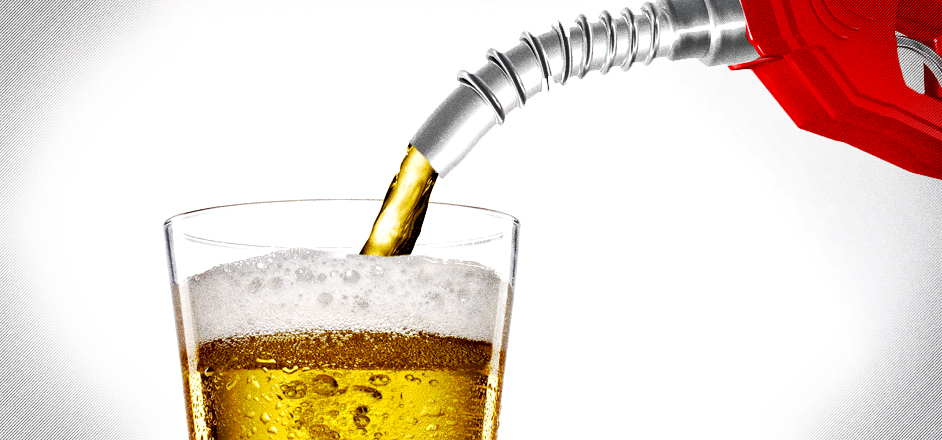Beer is the weed of alcohol: a universally celebrated shortcut to joy.
But now, beer’s status as the panacea to all world problems might be cemented into history by science itself. Chemists at the University of Bristol have made the first step toward creating a sustainable petrol using beer as the key ingredient in a groundbreaking — and surely coolest — scientific experiment to date.
Beer might literally bring us closer together on a global scale for something other than relentlessly calling ex-grlfriends late at night with little success.
“Turning beer into petrol was a bit of fun, and something to do with the leftovers of the lab Christmas party, but it has a serious point,” Professor Duncan Wass, whose team led the research, says.
The Eureka Moment sounds very movie-esque, but is actually the result of “simple” deduction.
One of the most widespread alternatives to regular gasoline is bioethanol, which contains up to 10 percent ethanol — the special ingredient that gives alcohol its “magic properties.”
Yet it’s butanol that is widely considered to be a much better replacement for gasoline, though it’s hard to produce in industrial quantities. The chemists realized that alcoholic drinks offer a great model for converting ethanol into butanol, with the brewing process for making beer being the best blueprint.
In other words: “Alcohol drinks are an ideal model for industrial ethanol fermentation broths — ethanol for fuel is essential made using a brewing process,” Wass adds.
“If our technology works with alcoholic drinks (especially beer which is the best model) then it shows it has the potential to be scaled up to make butanol as a (fuel) replacement on an industrial scale,” he continues.
The scientific term for this technology used to convert ethanol to butanol is a "catalyst" — the chemicals that speed up and drive the chemical reaction. The main takeaway from the study is that the catalyst can covert the ethanol in beer into butanol.
No need to be alarmed though, there won’t have to be entire breweries sacrificed in the process of finding alternative ways for transportation. If this thing ever happens on a global scale, the process would likely be a lot different than it is in current experiments.
“We wouldn’t actually want to use beer on an industrial scale and compete with potential food crops,” Wass adds. “But there are ways to obtain ethanol for fuel from fermentation that produces something that chemically is very much like beer — so beer is an excellent readily available model to test our technology.”
With any luck, science might even find alternative ways for making beer in the future, too, but for now, we should probably focus on this potentially major discovery for human kind.
Cheers to that!




Leave a Reply